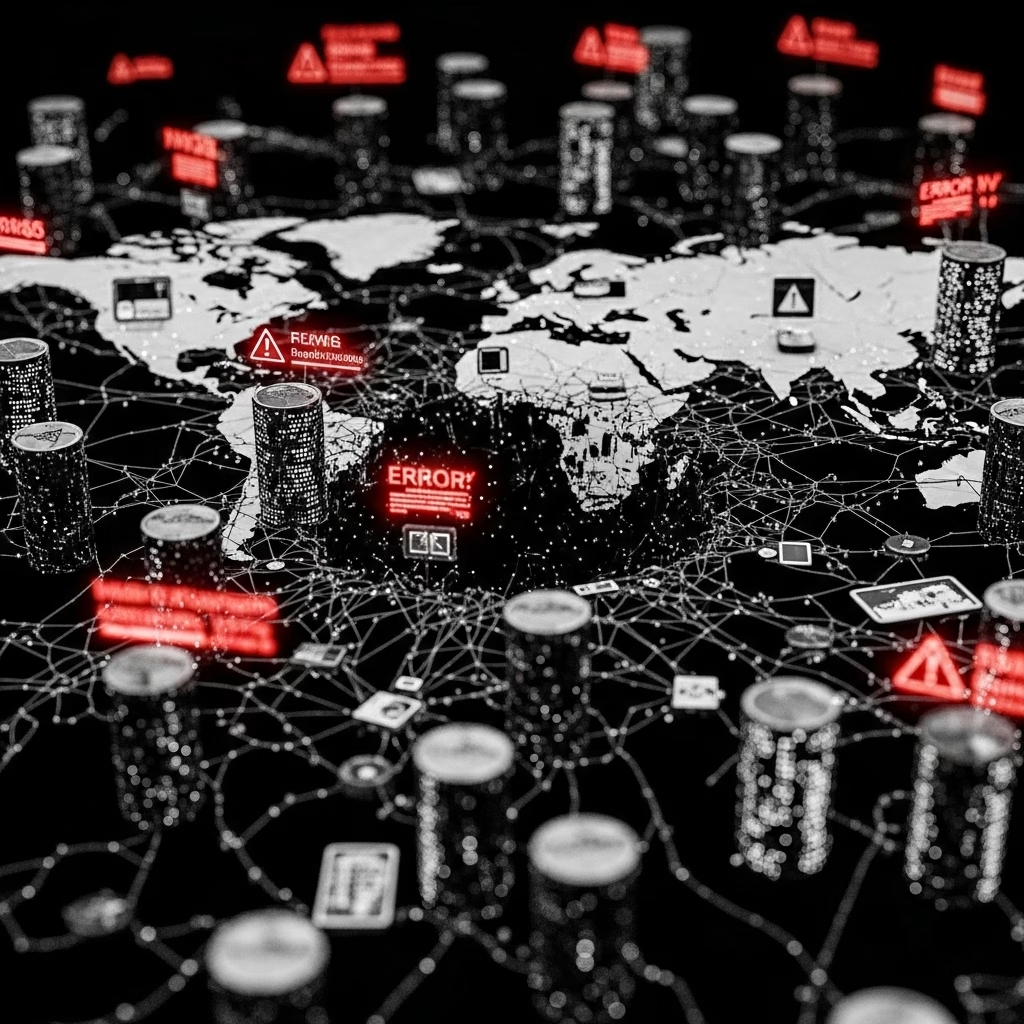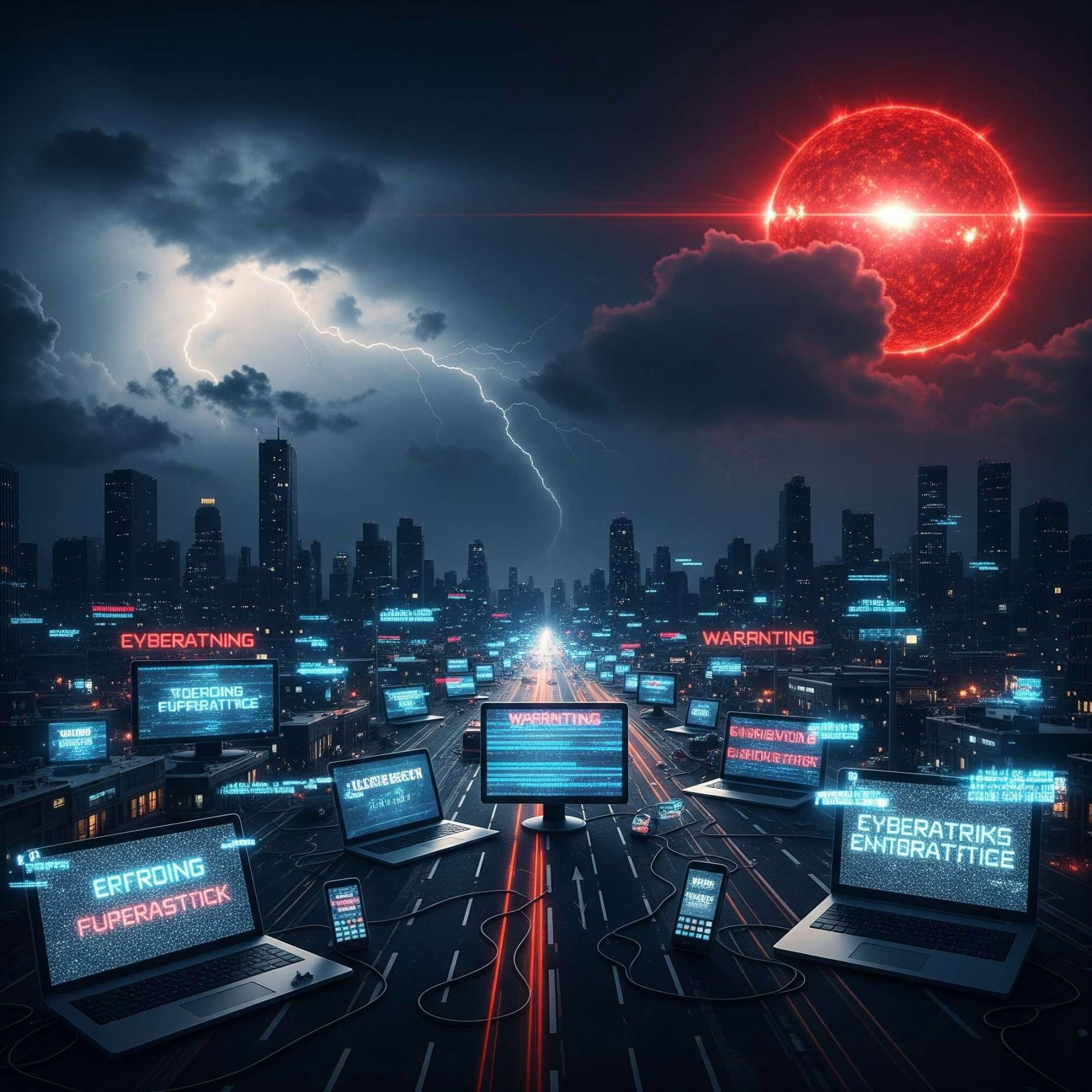The internet has become an inseparable part of daily life for most people across the globe. From online education and remote work to shopping, banking, entertainment, and news, nearly every aspect of our modern lives is connected to the digital world. The internet is the central nervous system of our society. Without it, the essential activities that we rely on would come to a grinding halt.
Can you imagine a day with a complete, worldwide internet blackout? The very thought is a nightmare for many. This raises a natural question: Is a global internet shutdown actually possible? The simple answer is that while the probability of a simultaneous, planet-wide outage is low, it is not impossible. So, what could trigger such a catastrophic event?
Global Cyberattacks: A Coordinated Assault
Imagine a scenario where malicious actors launch a meticulously planned cyberattack on a global scale. If this attack were to target and destroy the core infrastructure of the internet—such as root servers, the Domain Name System (DNS), or critical Internet Exchange Points (IXPs)—it could theoretically bring the entire system down.
A real-world example, though on a smaller scale, was the 2016 Dyn DDoS attack. This cyberattack disrupted major platforms like Twitter, Netflix, and Reddit for several hours, showcasing the vulnerability of the services we use daily.

Solar Storms and Cosmic Events
A powerful solar storm, an eruption of magnetic energy from the sun, could have devastating effects on Earth’s magnetic field and our technological infrastructure. We’ve already seen instances where Starlink satellites have been affected by solar phenomena. However, the impact isn’t limited to space. A massive solar storm could cripple communication networks on the ground.
The backbone of the global internet is the vast network of undersea fiber optic cables. If these cables were to be damaged or disrupted by a significant natural event, internet services would be severely impacted. Researchers believe that if an event similar to the 1859 Carrington Event (the most intense geomagnetic storm in recorded history) were to happen today, it could cause a widespread and prolonged internet blackout.
The Threat of Global Conflict
A major global conflict, such as a third World War, could also lead to a widespread internet shutdown. We have witnessed a modern example of this during the Russia-Ukraine war, where Ukrainian communication infrastructure was targeted, leading to significant internet disruptions. In that case, services were eventually restored with the help of satellite internet providers like Starlink.
Cascading Service Failures
The internet is an interconnected web of services. If a foundational service that many others depend on were to fail, it could create a domino effect. We saw a glimpse of this in 2024 with an outage at Cloudflare, a major internet infrastructure company. The disruption affected a wide range of services globally, including airlines and banking, with some taking several days to fully recover.

So, Is a Total Global Shutdown Plausible?
While the idea of the entire world going offline at once seems like science fiction, it remains a possibility, however remote. The internet is a decentralized system, meaning no single country or entity has complete control. This inherent design provides a level of resilience.
However, it is entirely plausible for large regions to experience extended internet outages for a period of time. We already see this on a smaller scale when specific areas face internet shutdowns due to political or technical reasons.
In conclusion, while a complete and simultaneous global internet collapse is unlikely, the vulnerabilities exist. A perfect storm of a massive cyberattack, a powerful solar event, or a major geopolitical conflict could push our connected world to the brink, reminding us of how fragile our digital existence truly is.




